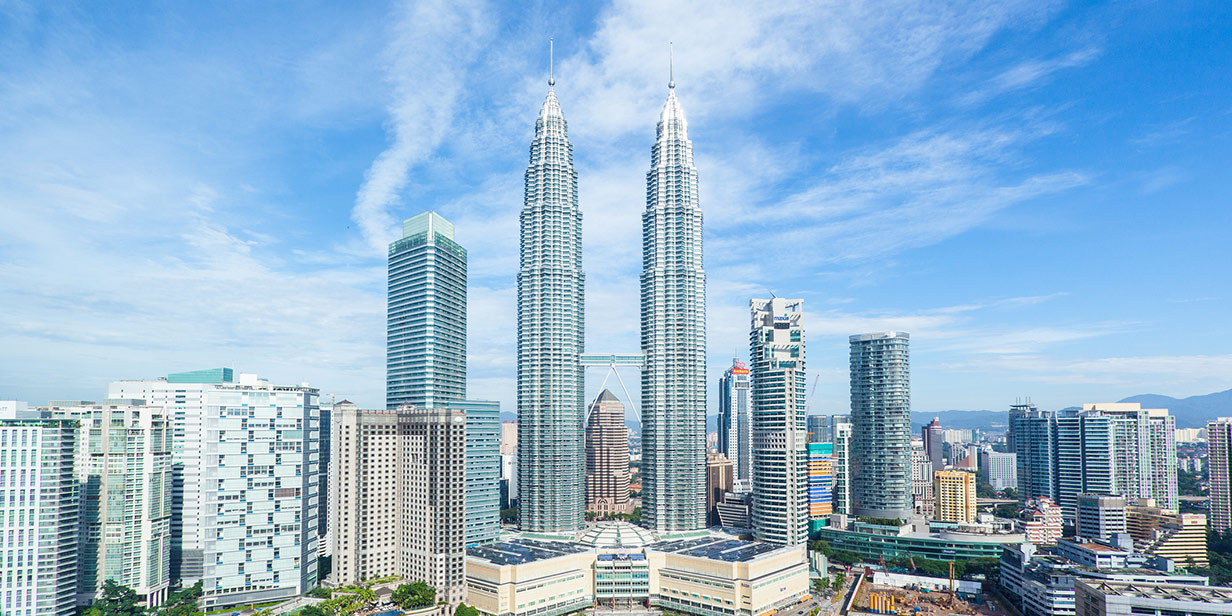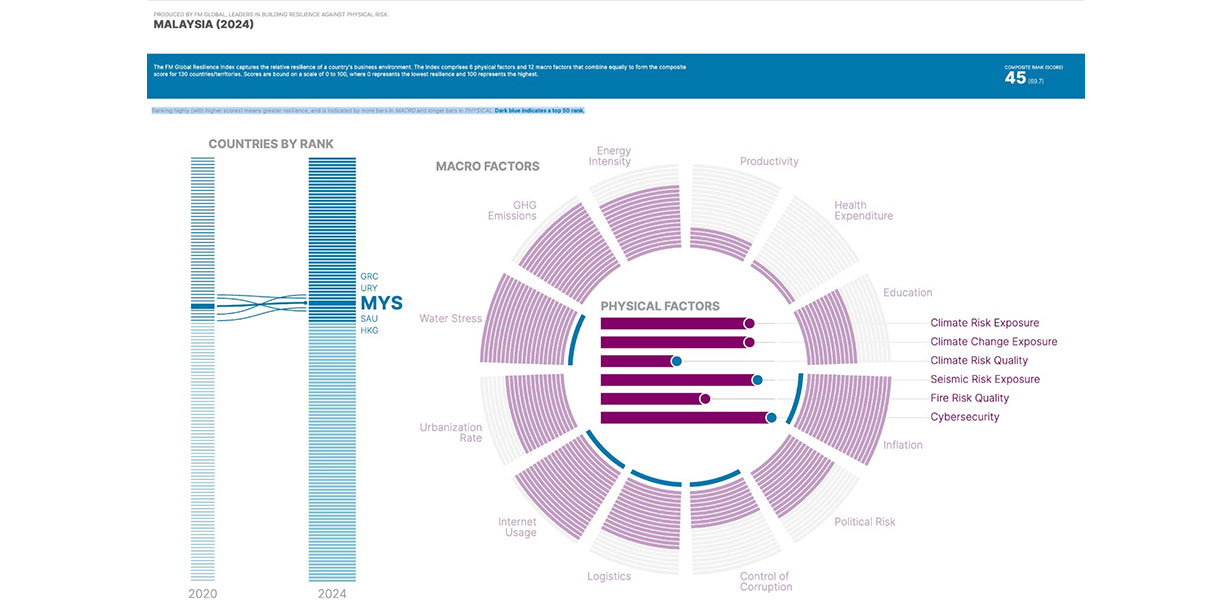Malaysia: Balancing Growth and Resilience

In this series, we take a closer look at how key Asian countries and territories ranked in this year’s FM Resilience Index. The FM Resilience Index is a tool developed to help understand a country’s vulnerability to disruptive events and its ability to recover swiftly, as well as which risks are manageable.
“Malaysia’s business resilience is a reflection of its efforts to balance development and sustainability while growing the economy to meet the needs of its population.”
Ranked No. 45 on the 2024 FM Resilience Index, Malaysia is renowned for its diverse, mixed economy that balances central economic planning and evolving private sector participation. Export industries provide a significant contribution to the country’s gross domestic product (GDP), including electronics and automotive manufacturing, complemented by petroleum, agriculture, natural gas and rubber – reflecting Malaysia’s rich abundance in national resources.
In more recent times, the country’s services sector has grown its share of the national economic pie, with industries such as finance, tourism and telecommunications establishing strong footholds. In the past 30 years, Malaysia has undergone a period of industrialisation, guided by government policy, to promote growth and attract foreign investment. An important and influential member of the ASEAN community of economies, Malaysia continues to invest in infrastructure projects such as transportation networks, ports and airports to support national and regional economic growth and connectivity.
Malaysia’s resilience profile reflects its continued emergence as a first-world economy that delicately balances economic modernisation and mitigation of climate risk exposures. Despite its overall mid-rank globally, it is one of only three countries and territories from Southeast Asia in the top third of the Resilience Index, alongside Singapore and Brunei Darussalam.

With a GDP of USD$406 billion, Malaysia ranks among the top 40 globally and is classified as upper-middle income by the World Bank. It ranks a respectable No. 32 for logistics and No. 53 for productivity, reflecting its geographical proximity to the region’s major trading ports in Singapore and Hong Kong, and the continued development of its services sector as a nascent digital economy.
Malaysia ranks a positive No. 20 for inflation, which is the measure of the annual rate of change in consumer prices, emphasising again the stability of core export industries and a strong domestic economy.
Coming in at No. 55 for political risk – likely a hangover from recent electoral changes and political scandals – and No. 49 for control of corruption, which measures the influence of public power on business. Malaysia ranks a highly commendable No. 10 on the Index for its commitment to cyber security.
Understandably, given its economic profile and emphasis on fossil fuel and agroforestry exports, Malaysia ranks No. 67 for greenhouse gas emissions – where estimated national emissions are divided by GDP per capita to achieve a comparative score. However, its high placing of No. 22 for water stress – a measure of freshwater supply versus withdrawal – reflects the country’s rich source of nature-based assets.
The country’s climate change exposure and climate risk exposure sits slightly below the middle of the global index, coming in at No. 84 and No. 74 respectively. The climate change exposure ranking is a measure of the area of land utilised for economic purposes that is exposed to climate impacts by 2050, while climate risk exposure is the same area today that is exposed specifically to the risks posed by typhoons and floods. Malaysia’s mix of urban and rural development and the remaining tropical forest areas work to balance its climate risk scorecard.
Malaysia achieves a positive top-half Index ranking for climate risk quality at No. 48, reflecting the efficacy of building codes and standards to manage against the relative climate risks. Similarly, Malaysia ranks No. 51 for fire risk quality due to the integrity of its building design standards and fire safety protocols.
Like many of its Southeast Asia neighbours, Malaysia’s business resilience is a reflection of its efforts to balance development and sustainability while growing the economy to meet the needs of its population. It faces the same climate risks as its neighbours, including the socio-economic impacts of rising sea levels, increasing temperatures and their bearing on productivity and crop yields, as the country works toward transitioning to lower carbon energy supplies.
Property and asset owners establishing a presence or expanding operations in Malaysia can take comfort in the country’s overall resilience fundamentals, while at the same time taking care to manage against the evolution of climate risk challenges that will impact its own and the region’s prosperity.
